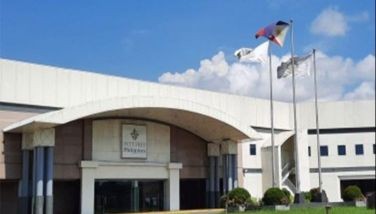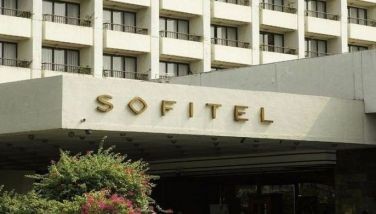BSP says no bubble as property exposure limit is breached
MANILA, Philippines - Property exposure of banks has exceeded regulatory limits, but the Bangko Sentral ng Pilipinas (BSP) was quick to dispel fears of asset bubble forming.
Real estate exposure— the proportion of property loans against total loan portfolio— hit 20.86 percent last year using an expanded computation that dropped all exemptions and included securities issued to property firms.
The tally fell slightly above the 20-percent cap set by the central bank beginning in 1997 when a property bubble in Asia escalated into a full-blown economic crisis. BSP Governor Amando Tetangco Jr. said there is no cause to worry.
“We have to keep in mind that this is now based on the more comprehensive computation. This is now based on a more expanded definition,†Tetangco told reporters late Thursday.
“It is not a cause of concern…There is no evidence of a bubble,†he added.
In total, P703.2 billion worth of property loans were granted by universal, commercial and thrift banks as well as trust departments last year, BSP data showed.
The figure included the amount granted to low-cost housing, loans to individuals as well as those supported by non-risk collaterals or guarantees, which were all exempted in the old calculation.
An additional P118.5 billion was also recorded as investments in property securities, whose inclusion to the new computation was part of the reform BSP announced in August last year.
All these compared to the banks’ total loan portfolio that stood at P3.939 trillion, central bank figures showed.
Minus bond placements, BSP managing director Johnny Noe Ravalo said lenders’ exposure actually stood at 17 percent, below the ceiling but still up from the previous year’s 14.5 percent when exemptions were still granted.
“We would continue monitoring this and see if there are shifts in the numbers down the road,†Ravalo said in the same briefing.
With prevailing low interest rates driving liquidity, economists and policymakers alike have been worried of asset bubbles, particularly in the real estate sector, is forming, thereby creating risks it may derail economic growth.
While property loans have seen a marked increase, Tetangco said they continue to be generally healthy, with only 3.7 percent of them considered non-performing or unsettled 30 days after the due date.
Unpaid bank credit is one recipe for a bubble.
Banks themselves are strong, Tetangco said, and shall also remain well-capitalized should potential losses occur as suggested by latest BSP stress tests.
In an event when half of residential real estate loans defaulted, banks’ capital adequacy ratio will stand at 15.77 percent, still well-above the minimum BSP-mandated 10 percent and international standard of eight percent.
At the individual bank level, BSP Deputy Governor Nestor Espenilla Jr. said underwriting standards have also been maintained despite the low interest environment.
“We are satisfied that the banks are extending credit in a responsible way. They are not lowering credit standards just to extend loans, we see no evidence of that,†he pointed out.
Over-all, Tetangco reiterated there is nothing to worry about.
"Taking this holistic view of the market is an effective way to ensure that we preserve and build upon the gains that we have already achieved thus far,†he said.
- Latest
- Trending


























